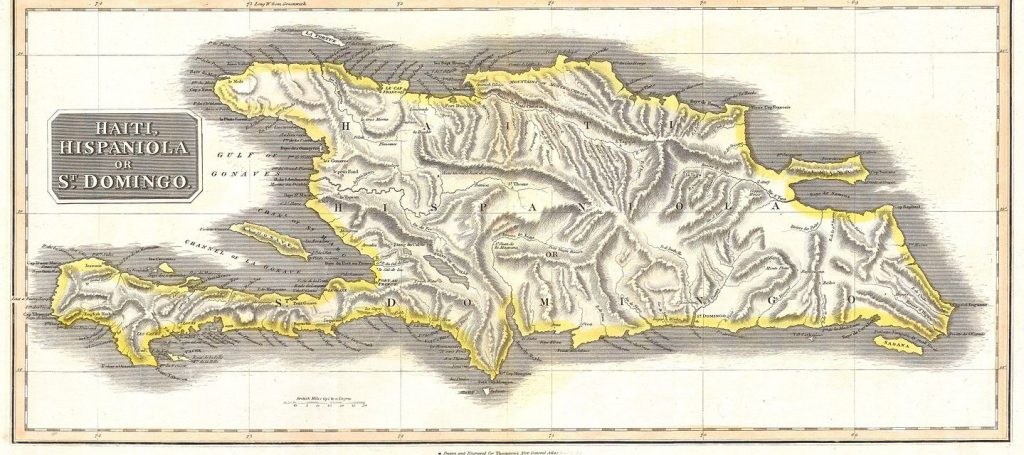
“Brief notices of Hayti: with its condition, resources and prospects,” is a travelogue written by John W. Candler in 1842, about his three month stay in the country of Haiti (which he refers to in text as Hayti). Candler was a devout quaker and outspoken abolitionist, who visited Haiti with the express purpose of showing the world that abolishing slavery was a boon to a state’s economic status and benefit to its people’s mental health. It is important to note that the British Empire abolished the slave trade in 1807, and out lawed the practice completely in 1838 with the Slavery Abolition Act of 1833. This meant that the findings of Candler’s Haitian vacation were directed at other countries that had not yet outlawed this most heinous practice, namely, the United States of America. Candler even made speeches around the Eastern United States and Canada about how well the Haitian people were doing almost 40 years after their independence and abolition of slavery.
In chapter V of his travelogue, John Candler, while quick to admonish and criticize the flaws of the Haitian capital of Port-au-Prince, even calling it “perhaps the filthiest capital in the world” has a refreshing level of optimism about Haiti’s ability to self-govern, and aptly criticizes institutions of racism and colorism that have maintained past the abolition of slavery (many of which have continued on almost 200 years after Haiti’s independence and abolition). One such practice quick to receive the golden hammer of Candler’s criticism is the Port-Au-Prince prison system. Candler makes note of the prison’s horrid atmosphere and treatment of its inmates and is excited for her that imprisonments have gone down in recent years. He also makes a strong point to say that Englishmen should not consider think less of the Haitians for this practice as “the Gaols of England… were equally wretched”
Candler makes a great note to mention on how fondly he was welcomed into Port-au-Prince, even holding counsel with the president of Haiti; Jean-Pierre Boyer (who would be ousted within 2 years). He does add that his warm welcome was largely due to Britain’s recent banning of slavery, and that Haitians of all race, class and status celebrate the end of slavery, and most hold much animosity towards the United States for its continuation of the practice. Candler writes about the people of Haiti with a refreshing lack of explicit patronization, going against what was the most common way to refer to Latin American and Caribbean people.
Sources
Boromé, Joseph A. “JOHN CANDLER’S VISIT TO AMERICA, 1850.” Bulletin of Friends Historical Association 48, no. 1 (1959): 21–62. http://www.jstor.org/stable/41944688.
Borome, Joseph A. “JOHN CANDLER AND THOMAS CLARKSON: AN ENDURING ANTISLAVERY FRIENDSHIP.” Quaker History 62, no. 1 (1973): 35–46. http://www.jstor.org/stable/41946699.
Candler, John W. “Brief notices of Hayti: with its condition, resources and prospects.”London: T. Ward & Co, (1842): Chapter V. https://archive.org/details/briefnoticesofha00cand/page/n4/mode/1up?view=theater
